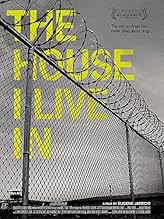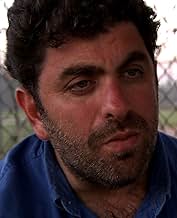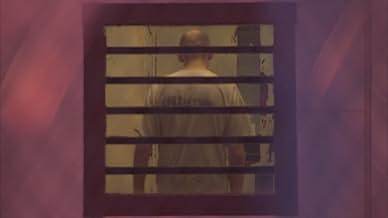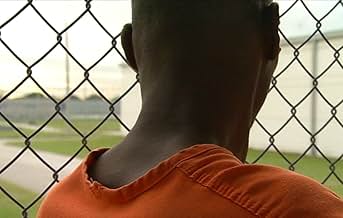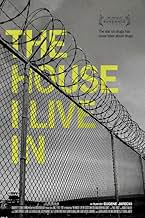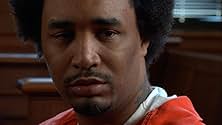Les Etats-Unis et la drogue - Une guerre sans fin
Ajouter une intrigue dans votre langueFrom the dealer to the narcotics officer, the inmate to the federal judge, a penetrating look inside America's criminal justice system, revealing the profound human rights implications of U.... Tout lireFrom the dealer to the narcotics officer, the inmate to the federal judge, a penetrating look inside America's criminal justice system, revealing the profound human rights implications of U.S. drug policy.From the dealer to the narcotics officer, the inmate to the federal judge, a penetrating look inside America's criminal justice system, revealing the profound human rights implications of U.S. drug policy.
- Réalisation
- Scénario
- Casting principal
- Récompenses
- 4 victoires et 3 nominations au total
- Self - Harvard University
- (as Prof. William Julius Wilson)
- Self - Providence Police
- (as Lt. Glendon Goldsboro)
- Self - Commanding Officer, Narcotics
- (as Lt. Michael Correia)
- Self - Physician, Addiction Expert
- (as Dr. Gabor Maté)
- Self - U.S. Federal Judge
- (as Hon. Mark Bennett)
- Self - Maurice's Lawyer
- (as Jim McGough)
- Self - Lexington Corrections Center
- (as Warden Eric Franklin)
- Self - Harvard University
- (as Prof. Charles J. Ogletree)
Avis à la une
The film provides an impressively broad set of data and evidence that cohesively screams one message—the war on drugs is a failure to the American public. As the first film focused solely on the subject, The House I Live In is undoubtedly one of the decade's most important films.
America has more of its citizens behind bars than in any other nation on the planet, and we presently have more Blacks incarcerated than were slaves in the Confederate States of America during the 1850's. And, America's misguided approach to the issue of illegal drugs is the single most important reason why so many of us are in prison.
These are only a couple of startling revelations from Eugene Jarecki's riveting documentary about America's terribly misguided War On Drugs. Clearly we have chosen to solve a health issue by creating a ridiculous legal and political policy based on an oxymoron called, 'the criminal justice system'. Racial scapegoating and a system based on 'prisons for profit' have allowed us to spend billions, yet more people use illegal drugs today than when the drug war first began. And, the quality of these drugs is infinitely superior.
No one, not the authorities or the criminals, seem to be satisfied with the status quo, and readily admit that the whole affair is an abject failure. But, the film shows how this suicidal social policy remains locked in place with no end in sight. Politicians campaign on making this nation drug free, and addiction rates soar and we can't seem to build jails quickly enough to fill them.
If there was ever a solution that was immeasurably worse than the problem, it is The War On Drugs. ABSOLUTE MUST SEE
Against this background, Eugene Jarecki has written, produced and directed this striking documentary examining the impact of the war on drugs in America. Starting with the black woman who was his childhood nanny, he interviews an eclectic cast of characters with different experiences of the problem: the drug dealer, the policeman, the judge, the prison guard, the life prisoner with no chance of parole, and – most eloquent of all – the creator of the television series "The Wire".
Until recently, the drug problem has been seen by many Americans as a black and brown issue and the strong emphasis on enforcement measures, with a growing use of mandatory minimum sentences, has led to a swollen ethnic prison population that, for many whites, has swept the problem off the streets and out of sight. But the availability of different drugs and the loss of manufacturing jobs has led to more white, working class men being caught up in this destruction of both personalities and communities. So, at its core, this is not an issue of ethnicity but one of poverty.
The film argues that the policies of the last four decades have failed and need to be fundamentally rethought. Drug use should be considered as less an issue of criminal justice and more a matter of public health. Many drug users are not evil or selfish but victims of poverty and deprivation who are trying to find some income where there is little employment and some solace when life is so miserable.
This is a stunning documentary that raises profound issues – and not just for Americans. It will not be an easy film to see at the cinema, so catch it on television (as I did) or buy or rent it.
Even more revealing is how Eugene Jarecki examines the history of drugs and how it's always been more the case that the poor and those that are black will be arrested for drug crimes. It's clear that many that live in a race and culture of downtrodden ridden history and black have simply became a statistical number for law enforcement to arrest. All while politicians on both side profit and get fat from fighting the drug war. Clearly they don't understand they need to stop locking people up for small drug offenses to save prison space for more serious criminals. Overall good doc that questions the way we are handling business in fighting the drug war it's educational and thought provoking no matter what your stance on the drug policy is.
Le saviez-vous
- Citations
Herself - Author, The New Jim Crow: You know, in any war, you've got to have an enemy, and when you think about impact, particularly on poor people of color, there are more African-Americans under correctional control today in prison or jail, on probation or parole, than were enslaved in 1850, a decade before the Civil War began. And that's something we haven't been willing to look in the mirror and ask ourselves, "what's really going on?"
- ConnexionsEdited into Independent Lens: The House I Live In (2013)
- Bandes originalesGrandma's Hands
Written by Bill Withers
Published by Songs of Universal, Inc. on behalf of Interior Music Corp.
Performed by Bill Withers
Courtesy of Columbia Records
By arrangement with Sony Music Licensing
Meilleurs choix
- How long is The House I Live In?Alimenté par Alexa
Détails
- Date de sortie
- Pays d’origine
- Sites officiels
- Langue
- Aussi connu sous le nom de
- The House I Live In
- Lieux de tournage
- New Haven, Connecticut, États-Unis(Interview)
- Sociétés de production
- Voir plus de crédits d'entreprise sur IMDbPro
Box-office
- Montant brut aux États-Unis et au Canada
- 210 752 $US
- Week-end de sortie aux États-Unis et au Canada
- 16 453 $US
- 7 oct. 2012
- Montant brut mondial
- 219 159 $US
Contribuer à cette page






